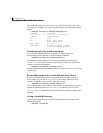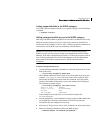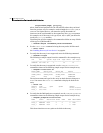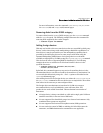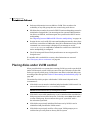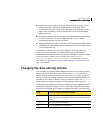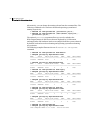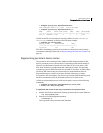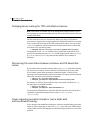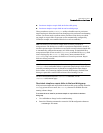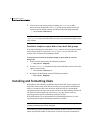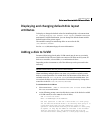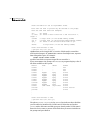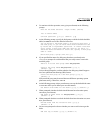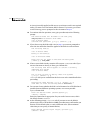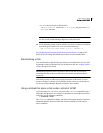
94 Administering disks
Changing the disk-naming scheme
Changing device naming for TPD-controlled enclosures
Note: This feature is available only if the default disk-naming scheme is set to
use operating system-based naming, and the TPD-controlled enclosure does not
contain fabric disks.
For disk enclosures that are controlled by third-party drivers (TPD) whose
coexistence is supported by an appropriate ASL, the default behavior is to assign
device names that are based on the TPD-assigned node names. You can use the
vxdmpadm command to switch between these names and the device names that
are known to the operating system:
# vxdmpadm setattr enclosure enclosure tpdmode=native|pseudo
The argument to the tpdmode attribute selects names that are based on those
used by the operating system (native), or TPD-assigned node names (pseudo).
If tpdmode is set to native, the path with the smallest device number is
displayed.
Discovering the association between enclosure and OS based disk
names
If you enable enclosure-based naming, and use the vxprint command to display
the structure of a volume, it shows enclosure-based disk device names (disk
access names) rather than operating system-based names. To discover the
operating system-based names that are associated with a given enclosure-based
disk name, use either of the following commands:
# vxdisk list enclosure-based_name
# vxdmpadm getsubpaths dmpnodename=enclosure-based_name
For example, to find the physical device that is associated with disk ENC0_21,
the appropriate commands would be:
# vxdisk list ENC0_21
# vxdmpadm getsubpaths dmpnodename=ENC0_21
To obtain the full pathname for the block and character disk device from these
commands, append the displayed device name to /dev/vx/dmp or
/dev/vx/rdmp.
Issues regarding persistent simple or nopriv disks with
enclosure-based naming
If you change from c#t#d# based naming to enclosure-based naming, persistent
simple or nopriv disks may be put in the “error” state and cause VxVM objects
on those disks to fail. If this happens, use the following procedures to correct the
problem:



